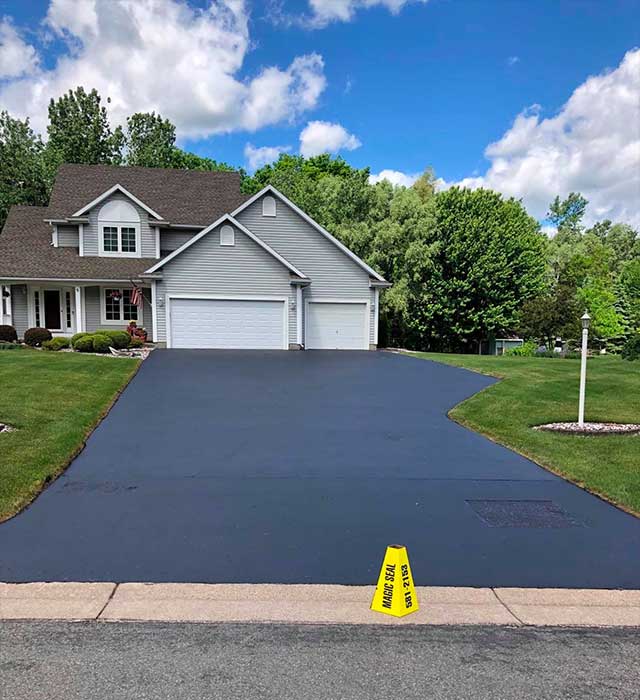Cold Mix Asphalt Vs. Hot Mix Asphalt: Which Is Right for You?

Make-up Distinctions
Cold mix and hot mix asphalts vary considerably in their make-up, with distinctive attributes that affect their efficiency and applications. Cold mix asphalt is created by emulsifying the asphalt binder with water and an emulsifying agent prior to mixing it with accumulation. This approach allows for the asphalt to be workable at lower temperatures, making it optimal for short-term repair services and for use in chillier weather condition conditions. Warm mix asphalt, on the various other hand, is made at high temperature levels, normally in between 300-350 ° F, which assists to attain far better compaction and an extra sturdy end product. The hot mix asphalt production procedure involves warming the accumulation and asphalt binder separately prior to integrating them at the asphalt plant.
Furthermore, cool mix asphalt tends to be much less dense and extra flexible than hot mix asphalt. This flexibility makes it better fit for areas with greater degrees of movement, such as driveways or roads with rush hour. On the other hand, hot mix asphalt is understood for its high sturdiness and resistance to rutting and fracturing, making it a favored choice for freeways and high-traffic roadways where long life is crucial.
Installment Refine Variations
The procedure of setting up cool mix and warm mix asphalt shows notable differences in their needs and treatments. In contrast, warm mix asphalt necessitates an extra sophisticated installation procedure. Due to the home heating needs, hot mix asphalt installments are usually lugged out by experts with customized devices, making certain a more structurally sound and permanent result.
Sturdiness and Long Life Aspects
When considering asphalt alternatives, longevity and longevity are crucial elements to examine for long lasting pavement performance. Hot mix asphalt (HMA) is recognized for its exceptional toughness and longevity.
In terms of longevity, HMA typically exceeds CMA because of its exceptional toughness and resistance residential or commercial properties. HMA pavements have a longer life span, calling for much less frequent repairs and maintenance, which can equate to set you back financial savings Continue over time. In addition, HMA sidewalks are extra quickly personalized to fulfill particular job demands, additionally improving their sturdiness.
Expense Considerations
Thinking about the financial ramifications is an essential aspect when assessing the selection in between warm mix asphalt (HMA) and cool mix asphalt (CMA) for pavement projects. While the first price of hot mix asphalt is usually more than that of cold mix asphalt, HMA commonly supplies a more affordable option in the long run due to its superior durability and durability. HMA is recognized for its capacity to hold up against rush hour loads and harsh weather, decreasing the need for frequent repairs and upkeep. On the various other hand, cold mix asphalt is more budget-friendly upfront however may call for more regular patching and resurfacing, resulting in greater maintenance prices in time.
In enhancement to product expenses, it's essential to think about the expenditures associated with installation and upkeep when comparing HMA and CMA. Inevitably, the choice between HMA and CMA should take right into visit this site right here account not simply the initial price yet also the lasting monetary effects to figure out the most affordable alternative for the particular sidewalk project.
Environmental Effect Comparison
Contrast of the environmental impacts in between hot mix asphalt (HMA) and cool mix asphalt (CMA) exposes distinctive differences in sustainability methods. HMA production requires high temperatures, resulting in boosted power intake and greenhouse gas emissions. The process also releases unstable natural substances (VOCs) and unsafe air toxins (HAPs) into the ambience. On the other hand, CMA is created and used at lower temperature levels, lowering power usage and emissions substantially. The lower manufacturing temperature levels of CMA lead to reduced gas intake and lower levels of CO2 exhausts, making it a much more eco pleasant choice.
In addition, making use of CMA commonly entails reusing existing asphalt pavement, advertising resource preservation and lowering the amount of waste sent to garbage dumps. This recycling facet further enhances the sustainability of CMA contrasted to HMA. On the whole, when taking into consideration the environmental effect, CMA emerges as a more environmentally lasting choice because of its lower power demands, decreased exhausts, and the capacity for reusing existing materials. By going with CMA over HMA, roadway building projects can add favorably to environmental preservation efforts.
Final Thought
To conclude, the selection between visit site cold mix asphalt (CMA) and warm mix asphalt (HMA) depends upon numerous factors such as structure, installment process, durability, durability, price, and environmental effect. asphalt patch repair. While CMA offers a affordable and quick service for small repairs, HMA guarantees remarkable durability and durability for rush hour locations. Consider these elements thoroughly to identify which type of asphalt is the right selection for your paving needs

Thinking about the economic ramifications is a crucial element when reviewing the option in between warm mix asphalt (HMA) and cool mix asphalt (CMA) for pavement jobs. While the first cost of warm mix asphalt is typically higher than that of cold mix asphalt, HMA usually offers a much more cost-efficient option in the lengthy run due to its superior toughness and long life. angle parking.Contrast of the ecological impacts between hot mix asphalt (HMA) and cool mix asphalt (CMA) exposes distinctive differences in sustainability practices.In final thought, the option in between cold mix asphalt (CMA) and hot mix asphalt (HMA) depends on different variables such as structure, installment process, toughness, long life, price, and environmental influence